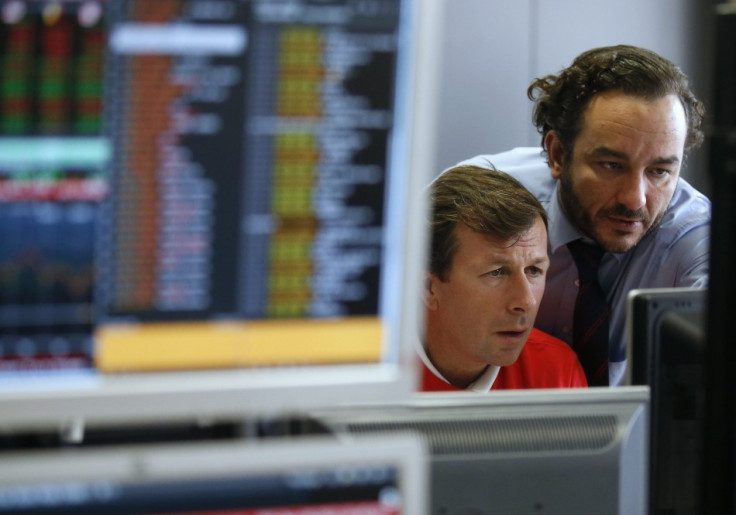European Markets Mixed amid Fiscal Cliff Concerns

European stocks remained mixed in the opening minutes of trade as the US "fiscal cliff" talks deadlock overshadowed the Fed's latest stimulus measures.
Europe's FTSEurofirst 300 share index eased 0.1 percent to 1,138.64. Britain's FTSE 100 too slipped 0.1 percent while Italy's FTSE MIB rose 0.5 percent. Spain's Ibex and France's CAC-40 rose 0.3 percent each.
In Germany, the DAX remained little changed.
The single currency edged up moderately against the US dollar, trading at $1.3087.
Asian markets had earlier ended mixed, with the Japanese index topping 9700 points for the first time since April as the Fed's monetary stimulus announcement boosted the dollar against the yen.
The Nikkei ended 1.68 percent to 9742.73 while South Korea's KOSPI was up 1.38 percent to 2002.77. Hong Kong's Hang Seng slipped 0.31 percent to 22434.27 towards close. China's Shanghai Composite Index fell 1.02 percent to 2061.48.
The US Federal Reserve concluded its two-day policy review with announcements of its new asset-purchasing plans as the current programme Operation Twist expires this month. The central bank also kept its interest rates steady at ultra-low levels, citing the high jobless levels in the country.
But concerns on the "fiscal cliff" negotiations rose again as lawmakers warned that the talks may extend further as deep differences remained. Fed Chairman Ben Bernanke himself said that the US economy is already being affected by the budget talks deadlock.
European Union finance ministers have reached an agreement on a banking supervisor for the bloc's lenders ahead of the region's leaders' two-day meeting in Brussels. The decision marks a move towards closer integration of European banks. The weakness in the sector remains one of the major factors in the continent's financial woes.
Traders in Tokyo were upbeat as the dollar shot up sharply against the yen. The greenback gained more than ¥83 for the first time in about nine months, pushing currency-sensitive stocks up. The Bank of Japan will meet for a policy review next week and is expected to introduce more monetary easing measures as the economy remains in recession. The country is holding its elections on 16 December.
South Korea's central bank retained its interest rates at 2.75 percent following the latest policy meet. Economists expect the bank to be assessing the impact of the earlier rate cuts and the latest stimulus measures from the Fed.
Chinese stocks remained weak, with the benchmark gauge dropping to more than week-low level as investors remained wary of the country's economic recovery.
"Some investors are doubtful about the magnitude of the economic recovery," Wei Wei, an analyst at West China Securities Co in Shanghai, told Bloomberg.
"That's why you see some investors pulling money out of the market to lock in profits."
Recent indicators, especially industrial output and retail sales, had shown that growth in China is picking up, prompting economists to forecast robust GDP figures for the coming months. But the weak external demand remains a concern to the government which is expected to make efforts to boost domestic consumption.
© Copyright IBTimes 2025. All rights reserved.

















